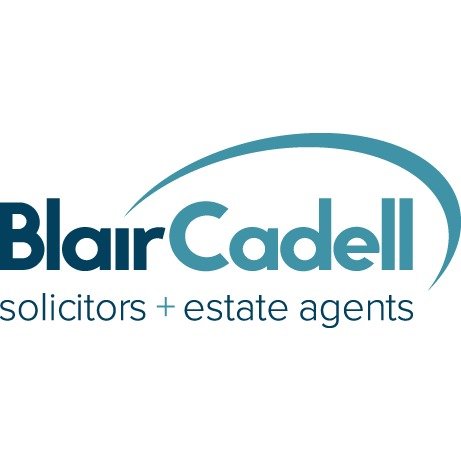Best Antitrust Litigation Lawyers in United Kingdom
Share your needs with us, get contacted by law firms.
Free. Takes 2 min.
Or refine your search by selecting a city:
List of the best lawyers in United Kingdom
About Antitrust Litigation Law in United Kingdom
Antitrust litigation in the United Kingdom involves legal actions regarding anti-competitive behavior and practices that violate competition law. Antitrust laws, also known as competition laws, are designed to maintain fair competition in the market and prevent businesses from engaging in practices that harm consumers or other businesses. The Competition Act 1998 and the Enterprise Act 2002 form the foundation of antitrust enforcement in the UK. The Competition and Markets Authority (CMA) is the primary regulator in this area, investigating and taking action against companies that breach competition law. Typical antitrust litigation includes investigations, prosecutions, private damages claims, and appeals related to anti-competitive agreements, abuse of dominance, cartels, or mergers that risk reducing competition.
Why You May Need a Lawyer
Antitrust litigation is complex and high stakes. You may require a specialist lawyer in situations such as:
- Your business is being investigated by the CMA for suspected anti-competitive practices or cartel activity.
- You are a victim of anti-competitive conduct, such as price-fixing or market sharing, and wish to seek damages.
- Your company has received a Statement of Objections or an infringement decision from a competition authority.
- You want to ensure a planned merger or acquisition complies with UK competition law.
- You require representation in legal proceedings before the Competition Appeal Tribunal (CAT) or higher courts.
- You need advice on compliance risk or to run internal audits to prevent violations.
- You are involved in a civil lawsuit where competition law issues have been raised as a defense or counterclaim.
A lawyer can help you understand your rights, obligations, and the legal process, as well as represent your interests throughout investigations or litigation.
Local Laws Overview
Key aspects of UK antitrust law relevant to litigation include:
- Competition Act 1998 - Prohibits anti-competitive agreements (Chapter I prohibition) and the abuse of a dominant position (Chapter II prohibition).
- Enterprise Act 2002 - Introduced criminal penalties for individuals involved in cartel conduct and procedures for market investigations.
- Mergers - The CMA reviews mergers and acquisitions to ensure they do not result in a substantial lessening of competition.
- Private Damages Actions - Individuals and businesses harmed by anti-competitive conduct can seek compensation through the courts.
- Competition Appeal Tribunal (CAT) - A specialist court that hears appeals and claims related to competition law decisions.
- Post-Brexit context - The UK has its own regime, separate from the EU, but retains elements similar to EU competition law in how cases are approached.
Frequently Asked Questions
What is antitrust or competition law?
Antitrust or competition law refers to rules that promote fair competition and prevent companies from engaging in anti-competitive practices, such as forming cartels, abusing market dominance, or entering into restrictive agreements.
What are common examples of anti-competitive behavior?
Typical examples include price-fixing, bid-rigging, market sharing between competitors, abusing a dominant market position, and entering into exclusive supply agreements that harm competition.
Who enforces antitrust law in the UK?
The Competition and Markets Authority (CMA) is the main body responsible for enforcing antitrust law in the UK. Sector regulators like Ofcom or Ofgem can also take enforcement action in their respective industries.
Can individuals or businesses sue for damages?
Yes, if you or your business has suffered financial losses due to anti-competitive practices, you can bring a damages claim in the civil courts or before the Competition Appeal Tribunal.
What happens if my business is found to have broken antitrust law?
Your business may receive significant fines, individuals may be held personally liable, and affected parties can sue for damages. You might be required to change your business practices as directed by the authorities.
What should I do if I receive a notice from the CMA?
If you receive a notice or request for information from the CMA, seek legal advice immediately. Responding incorrectly or failing to cooperate can have serious consequences.
How long do antitrust investigations and litigation take?
The duration varies depending on complexity. Investigations can last several months or years. Private litigation can also be lengthy due to the complexity of proving loss and causation.
Are there criminal penalties for breaking antitrust law?
Yes, individuals involved in cartel conduct (such as price-fixing or market sharing) can face criminal prosecution, including prison sentences and disqualification from being a company director.
What is leniency and how can it help?
Leniency is a program where a business or individual involved in a cartel can reduce penalties by reporting the conduct and cooperating with the authorities. Early legal advice is crucial if you are considering applying for leniency.
How has Brexit changed antitrust law in the UK?
Since Brexit, the UK runs a standalone competition regime. The CMA handles major cases independently from the EU authorities, and UK law applies to cases affecting UK markets, though it remains similar to EU law in many ways.
Additional Resources
- Competition and Markets Authority (CMA) - The UK's main competition law regulator, provides guidance, reports, and news on enforcement actions.
- Competition Appeal Tribunal (CAT) - Specialist court handling competition law litigation and appeals.
- Citizens Advice - Offers practical advice and information if you believe you have encountered anti-competitive conduct.
- Law Society of England and Wales - Find solicitors with antitrust or competition law expertise.
- Government Legal Department - Provides legal services to the UK government and may offer relevant updates on applicable legislation.
Next Steps
If you believe you need legal assistance related to antitrust litigation in the United Kingdom, consider the following steps:
- Gather all relevant documents and evidence relating to your situation before seeking advice.
- Consult with a solicitor or law firm experienced in competition and antitrust law. Early legal advice is critical, especially if you are under investigation or require urgent compliance guidance.
- Check if you can resolve issues through regulators via guidance or notifications before proceeding with formal litigation.
- Keep careful records of all communications with competition authorities or other parties involved.
- If you are a claimant, calculate any financial losses and collect supporting documents to help your lawyer build your case.
- Monitor updates from the CMA and other regulators on policy and enforcement trends that may affect your situation.
- Follow your lawyer's guidance closely throughout the process to ensure your rights and interests are protected.
By taking these steps, you increase your chances of a positive outcome, whether you are defending against an investigation, seeking damages, or ensuring compliance with UK antitrust law.
Lawzana helps you find the best lawyers and law firms in United Kingdom through a curated and pre-screened list of qualified legal professionals. Our platform offers rankings and detailed profiles of attorneys and law firms, allowing you to compare based on practice areas, including Antitrust Litigation, experience, and client feedback.
Each profile includes a description of the firm's areas of practice, client reviews, team members and partners, year of establishment, spoken languages, office locations, contact information, social media presence, and any published articles or resources. Most firms on our platform speak English and are experienced in both local and international legal matters.
Get a quote from top-rated law firms in United Kingdom — quickly, securely, and without unnecessary hassle.
Disclaimer:
The information provided on this page is for general informational purposes only and does not constitute legal advice. While we strive to ensure the accuracy and relevance of the content, legal information may change over time, and interpretations of the law can vary. You should always consult with a qualified legal professional for advice specific to your situation.
We disclaim all liability for actions taken or not taken based on the content of this page. If you believe any information is incorrect or outdated, please contact us, and we will review and update it where appropriate.
Browse antitrust litigation law firms by city in United Kingdom
Refine your search by selecting a city.

















